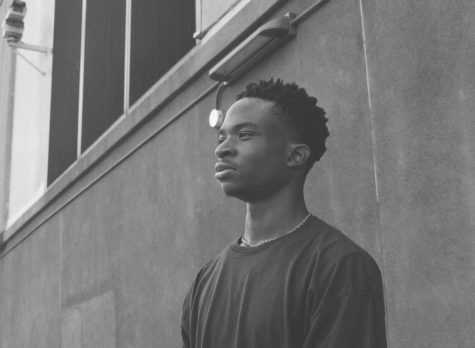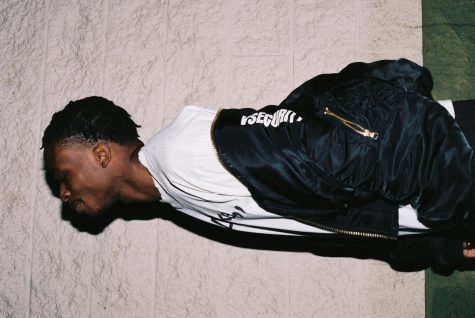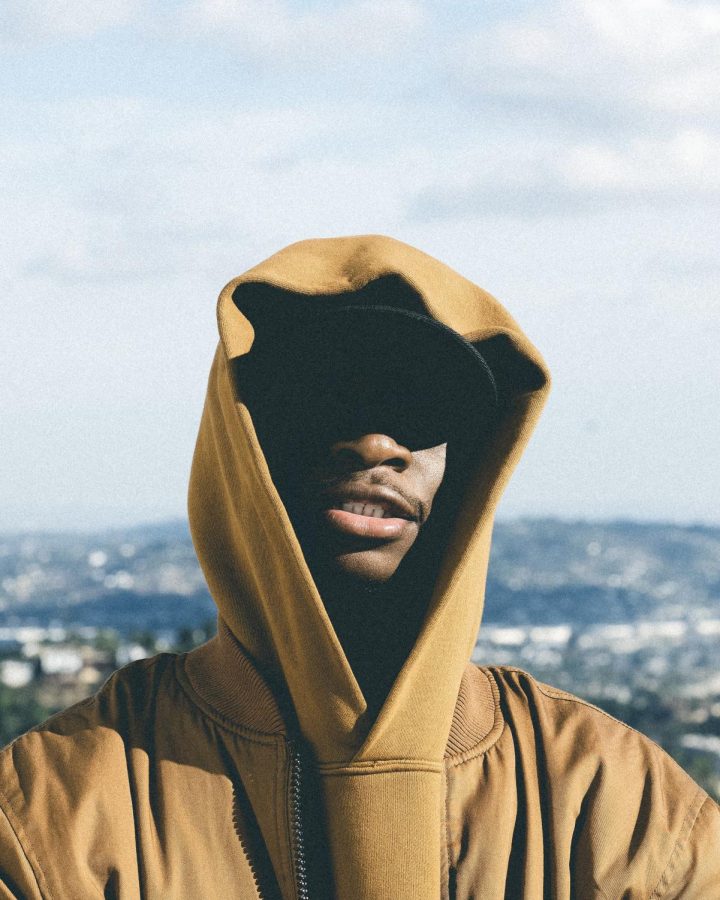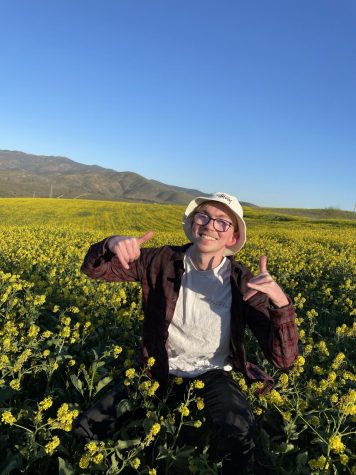Seyi Folorunso is a senior mathematics major at San Diego State who makes rap music packed with social commentary, clever wordplay, and a heaping dose of mystique. Under his stage name Caleb Hampton, he has a seven-song solo project, “Atuk,” along with several collaborations, features, and plenty in store for 2022.
Hampton began recording music in October 2017, the same year he moved to Hayward, California after graduating from secondary boarding school in Nigeria. By the time he moved to the U.S., Hampton had already been writing for years. Initially, he wrote verses, then transitioned to poetry, and eventually back to writing raps after finally finding his musical voice.
“Most of the things I wrote when I first started felt like an imitation. They didn’t really feel natural, so I went into poetry and then it became natural then I brought it back into music,” Hampton said.
Adjusting his writing process helped Hampton establish a singular cadence and vocabulary. Hampton tries to make every one of his songs have its own identity — this also applies to the way he mixes his music.
Keeping things unique, Hampton’s creative process differs per song. He attempts to write independently of the beat to make sure his words match up on their own regardless of production. In essence, he writes rhythmic poems before selecting a beat and then tries to piece it together from there, making only minor corrections to adjust and not watering down his verses for the sake of the beat. This ensures his verses remain strong and his rhymes stay sharp.

Though it’s easy to force yourself to stay on beat 100% of the time and eliminate room for artistic improvisation, Hampton’s approach of attacking the beat with an irregular flow while still hitting all the necessary points offers a more interesting and creative alternative. This loose approach is inspired by rappers like MAVI, Navy Blue, and Billy Wood, who manipulate their flow to allow for extra words and treat their beats as adaptable soundtracks.
“I don’t usually have a layout when I make music, I’m very disorganized when I make music,” Hampton said.
Hampton will get bouts of inspiration that spark him to write new songs but doesn’t like to divulge too much of his process, leaving his creations shrouded in a bit of mystery. He says his secondary school experience was pivotal in shaping his life, and one of his classmates, Dre the Monarch, is now a frequent collaborator and one of Hampton’s biggest influences. Though a specific story may be hard to place, Hampton’s past is all over his music, and it’s something that’s impossible to avoid.
“My life experiences from today to years ago, they’re all in my music. Like I cannot write without incorporating my life experiences – it just doesn’t work,” Hampton said.
When telling stories of his life, Hampton likes to stay adaptive and likes how rap music allows a single story to be told from increasingly compelling perspectives. This concept also applies to many artists who find new and creative ways to rap about the same subject (*cough* *cough* Pusha-T).
“I can make albums for the rest of my life based on one story in my life and I will do it a million different ways and make it more interesting every single time. And that’s the beauty of it,” Hampton said.
He picks up a lot of words from watching movies and TV shows and keeps a Notes list with words he wants to incorporate in his raps when the time is right. He used to be very particular about where his rhymes sat and now is more free-flowing with his rhyme schemes.
“I focus a lot on the words but I still make sure that those words are not taking away from the emotional message or aspect of what my music is supposed to be communicating,” Hampton said.

When making “Atuk,” Hampton says he was hit by a quick wave of creativity, unlike with the previous projects he scrapped because the music felt too forced. “Atuk” was a natural creation, one that companies much of his interests and past experiences with an eye on Black history.
He came up with a lot of ideas from the album by watching a lot of older TV shows and movies, writing the aptly named “Wiseguy” about “Goodfellas” and centering the song “Child Art” around his lifelong interest in Marvel comics. There is also a noticeable sense of urgency throughout the album, owing heavily to Hampton writing the songs during the height of the 2020 Black Lives Matter protests.
Topics discussed include the life and loss of Breonna Taylor (“Yuuf”), Nelson Mandela, and pre-colonial Nigeria (“Cape Town”), and the lowest point of Hampton’s life (“Stage Zero”). The album transitions from high to low but Hampton steadily balances his blend of perspective and actuality, shedding light on his past as well as his identity in the American landscape.
Currently, Hampton is working on certain projects that are expected to come out in a month or so. Whenever it does release, expect a planned rollout with tracks, short films and journals, allowing his fans another insight into Hampton’s inspirations.









